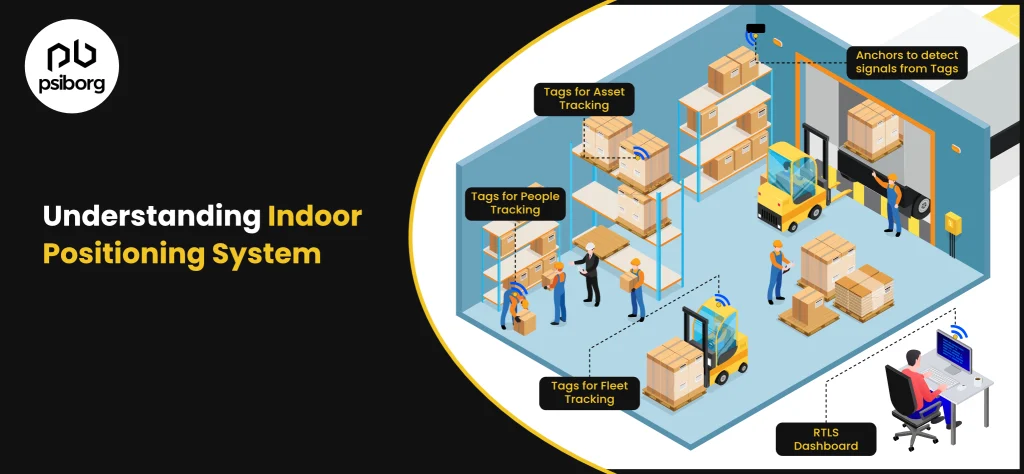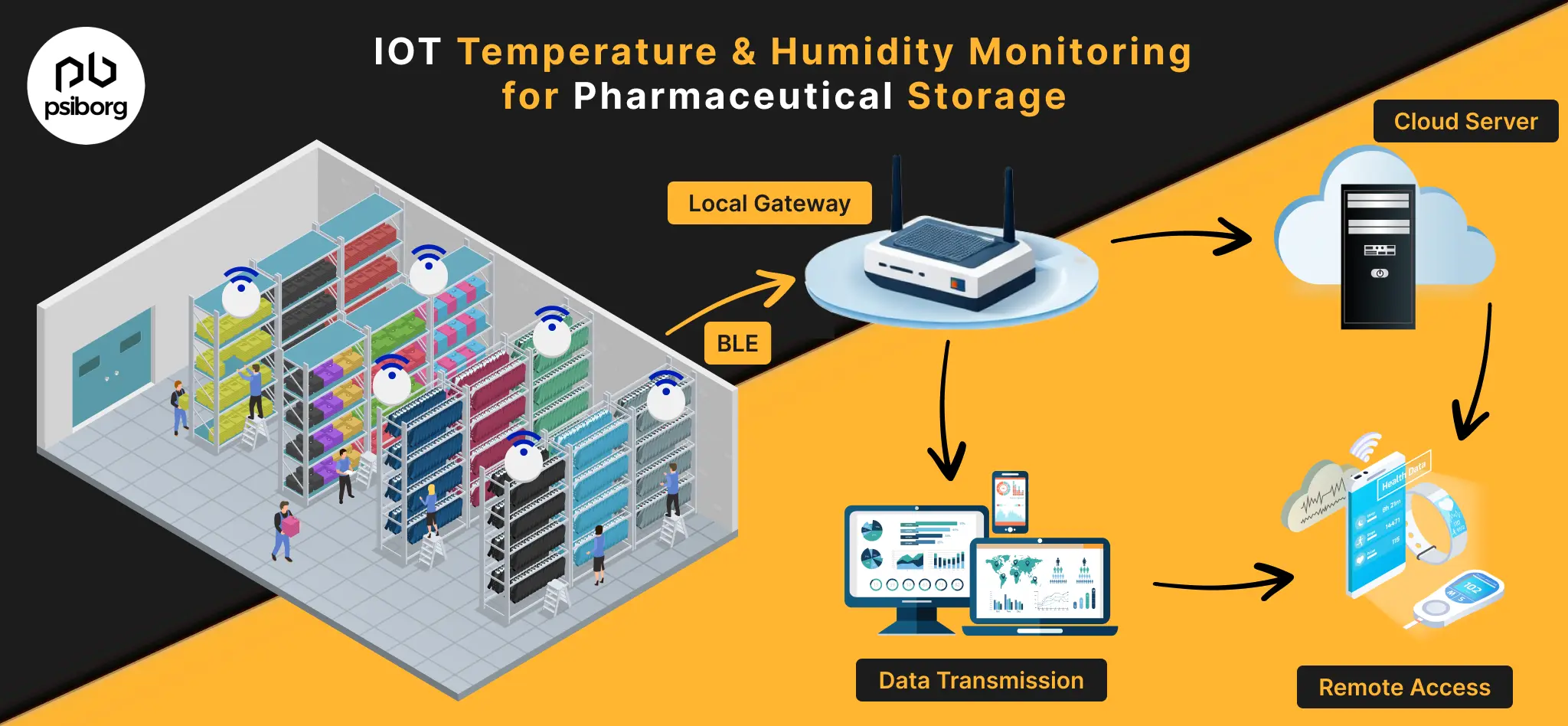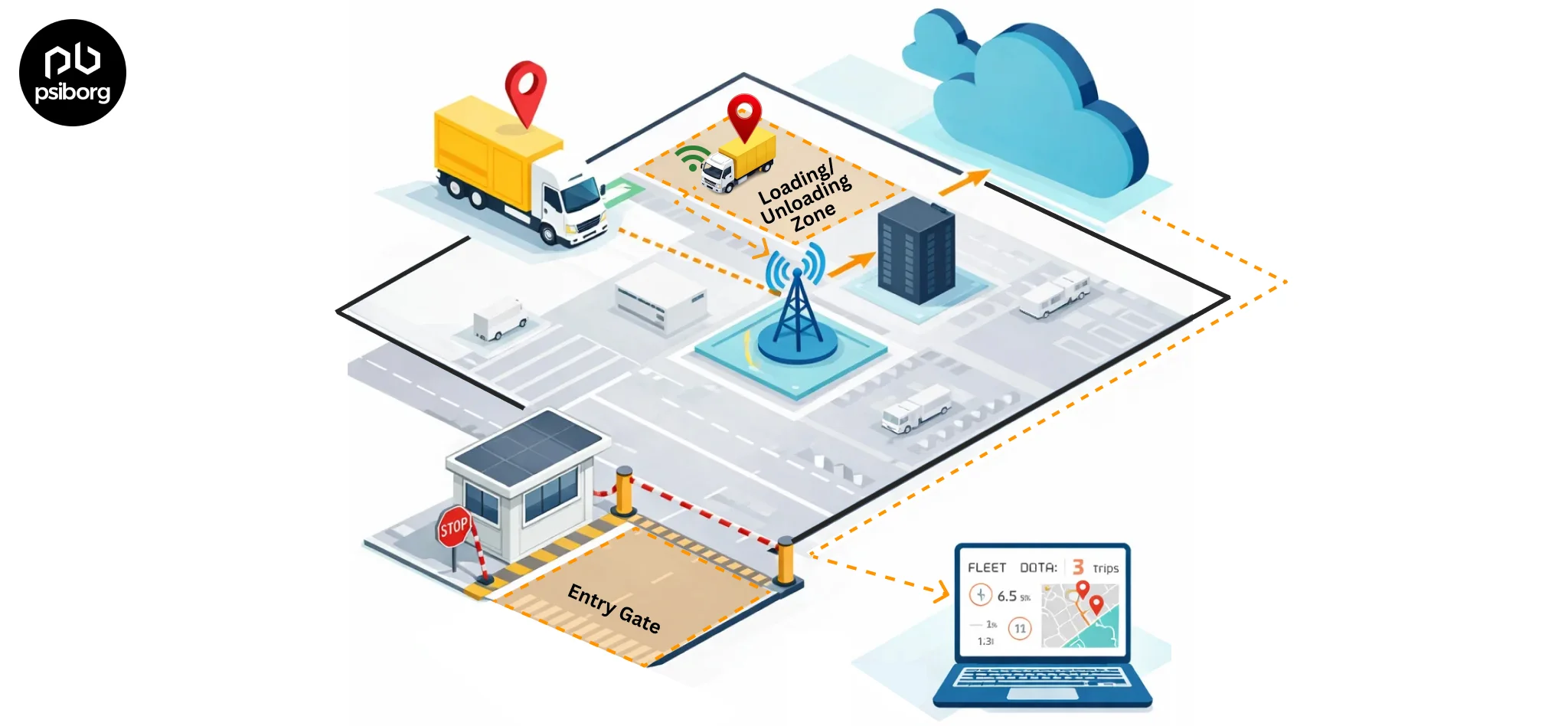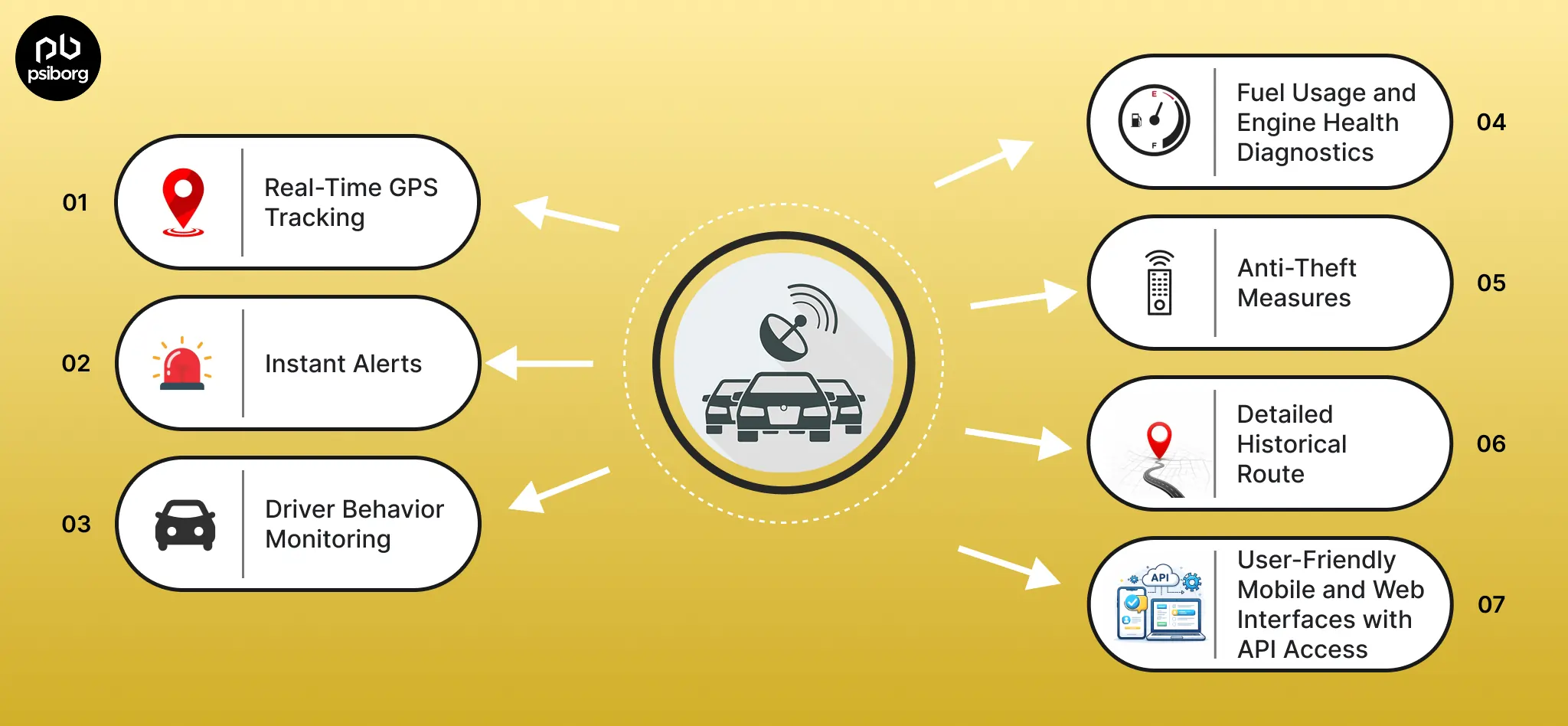Large facilities like industrial and commercial environments can’t really do without real-time location systems (RTLS) because they need to keep track of a lot of valuable assets. While GPS is much efficient in open outdoor areas, enclosed spaces like factories, hospitals, storage units and airports thrive better on the specially-designed RTLS indoor tracking. IoT integration is a popular trend at the moment and for all the right reasons. Businesses are increasingly adopting indoor asset tracking systems to boost up productivity, reduce losses and simplify operations. Here we will learn how RTLS asset tracking works and the practical benefits it delivers across businesses.

What is RTLS?
Real-Time Location System is a technology that is used to identify and track the location of people and things within a specific area automatically in real time. All of this can be done through an efficient network of tags and sensors that wirelessly communicate with a gateway. Asset tracking RTLS gives precise and live data on the movement and location of tools, machines and people in the space, which traditional inventory systems can never. This is why RTLS tracking is so important for industries where the misplacement of assets can lead to a huge level of delays and financial losses.
How Does an Indoor Positioning System Work?
An IPS System is powered by indoor RTLS and works by attaching a wireless tag to each asset that is to be tracked. These tags keep on sending signals received by fixed anchors (readers) that are strategically placed all over the indoor environment. The system can accurately estimate the location of the asset according to its signal strength, time of arrival in that area and other methods. The data that is extracted is then processed and seen through centralized IoT software. Users can log in anytime and refer to the dashboard to monitor the live movement of the assets.
Such a continuous flow of data provides operations teams with visibility, control, and automation, which is very empowering. At Psiborg, our solutions use BLE beacons for indoor positioning for seamless coverage with minimal power consumption.
Technology Used for Indoor Asset Tracking
How well an indoor asset tracking system performs largely depends on the technology involved in it. Out of the different options in the market, the two most reliable options are Bluetooth Low Energy (BLE) and Ultra-Wideband (UWB).
Bluetooth Low Energy (BLE):
It’s wonderful because it doesn’t cost much and uses less power. You can see a wide use of BLE indoor positioning in workers location tracking, where they allow for accuracy levels within a few meters.
Ultra-Wideband (UWB):
Operations where they need high accuracy (within 10–30 cm), UWB is the best suited technology. It works great for environments like inventory monitoring and hospitals because precision matters a lot here.
These revolutionary technologies, especially Bluetooth positioning, help industries in many ways with automated and intelligent RTLS asset management systems. In sectors like manufacturing and logistics, RTLS integration with forklift tracking solutions helps in optimizing the movement of material and reducing the risks of accidents.
If you’re working in busy environments with a range of assets like hospitals, check out how Medical equipment tracking in hospitals can change the whole scene of healthcare operations using RTLS.
Importance of Accuracy in RTLS
For the effectiveness of RTLS indoor tracking, the accuracy levels are the most important. A few meters of error might not be such a big deal in retail, but not in complex environments like hospitals or aviation, even slight inaccuracies can lead to losses and poor decision making.
![]()
With UWB technology in indoor asset tracking systems, industries can achieve centimeter-level precision. Such amazing accuracy will always help to improve workflows, maintain safety protocols and encourage staff coordination. As a result, faster operations and fewer delays.
Feature | BLE | UWB |
Accuracy | 3–5 meters | 10–30 cm |
Technique | RSSI | Time of Flight (ToF) |
Bandwidth | Narrow (~1 MHz) | Ultra-wide (>500 MHz) |
Interference-prone | Yes | Minimal |
Cost & Complexity | Lower | Higher |
The Benefits of Indoor Asset Tracking
Adopting an indoor asset tracking system comes with a bunch of really good advantages:
Enhanced Visibility:
To start with, you can easily monitor the movement of the assets in real-time.
Loss Prevention:
Quick tracking of high-value assets and reduced misplacement.
Operational Efficiency:
Less time wasted in searching for the required equipment.
Data Analytics:
Managers can analyze the usage of the asset and predict the need for maintenance.
Compliance & Safety:
It also makes sure that critical equipment is present where it should be.
Aviation industry, for example, has started to make the most of advanced RTLS asset management for functions like airport trolley tracking to improve customer experience and staff efficiency at the same time.
Why Indoor GPS Tracking Doesn’t Work?
When it’s about outdoor tracking, GPS works fantastically, but sadly, it loses its effectiveness in indoors because of blocked satellite signals. These signals just can’t penetrate building materials effectively. This is where indoor RTLS shines.
With UWB and BLE indoor positioning, businesses can experience reliable indoor navigation with excellent precision and responsiveness. Also, in environments where equipment is frequently moved and used, like warehouses, traditional GPS is ineffective as well as impractical.
The most trending use cases of GPS tracking devices are
Use Cases of Indoor Asset Tracking
RTLS indoor tracking solutions are versatile and are showing great results across multiple industries already:
Healthcare:
Monitor critical medical assets like wheelchairs, beds, surgical tools and staff in real-time with Smart hospital asset tracking systems.
Manufacturing:
Track raw materials, components, tools, and equipment to reduce downtime and prevent any loss of assets.
Warehousing:
Streamline the entire stock and avoid losses through IoT in inventory management.
Airports:
Track luggage trolleys and improve passenger services with trolley management. It also helps the support staff.
Construction:
Keep a tab on the availability and security of high-value equipment for efficient deployment.
Conclusion
RTLS indoor tracking system is no less than a necessity for modern operations. With workflows becoming more complex, the need for real-time asset visibility has only increased. At PsiBorg, we use RTLS asset management uses technologies like BLE and UWB to give you full, control and operational insights. Whether healthcare, aviation, manufacturing or storage business, an efficient indoor asset tracking solution in place will make sure your operations are smarter, safer and lot more effective.
FAQs
It’s a smart technology that monitors the movement of people and/or things within indoor environments. Where GPS satellite signals cannot reach, indoor location tracking never fails to impress . It puts into use specially-designed technologies like BLE or UWB for live tracking. All in all, it’s highly practical and unbeatable in closed spaces like manufacturing units, hospitals and storage facilities.
The major difference is that GPS is a satellite-based tracking system which perfectly works outdoors and RTLS is the best for indoor asset tracking. RTLS uses anchors, sensors and tags to provide for asset visibility and works efficiently in enclosed spaces.
With asset tracking, businesses can reduce loss, improve the efficiency of their operations and ensure assets are always available when needed. It offers live location data, helps with inventory management and tells which machine/equipment needs maintenance. That’s how you also improve ROI through data-driven decisions.
Tracking the indoor assets is highly useful because you get a clear picture of the location and usage of valuable equipment within the indoor environments. In fact, it minimizes time spent on searching, improves security and even helps with compliance and auditing processes. That’s how businesses can achieve better workflow efficiency and cost savings.





